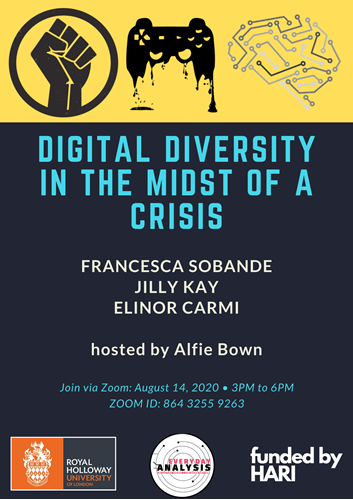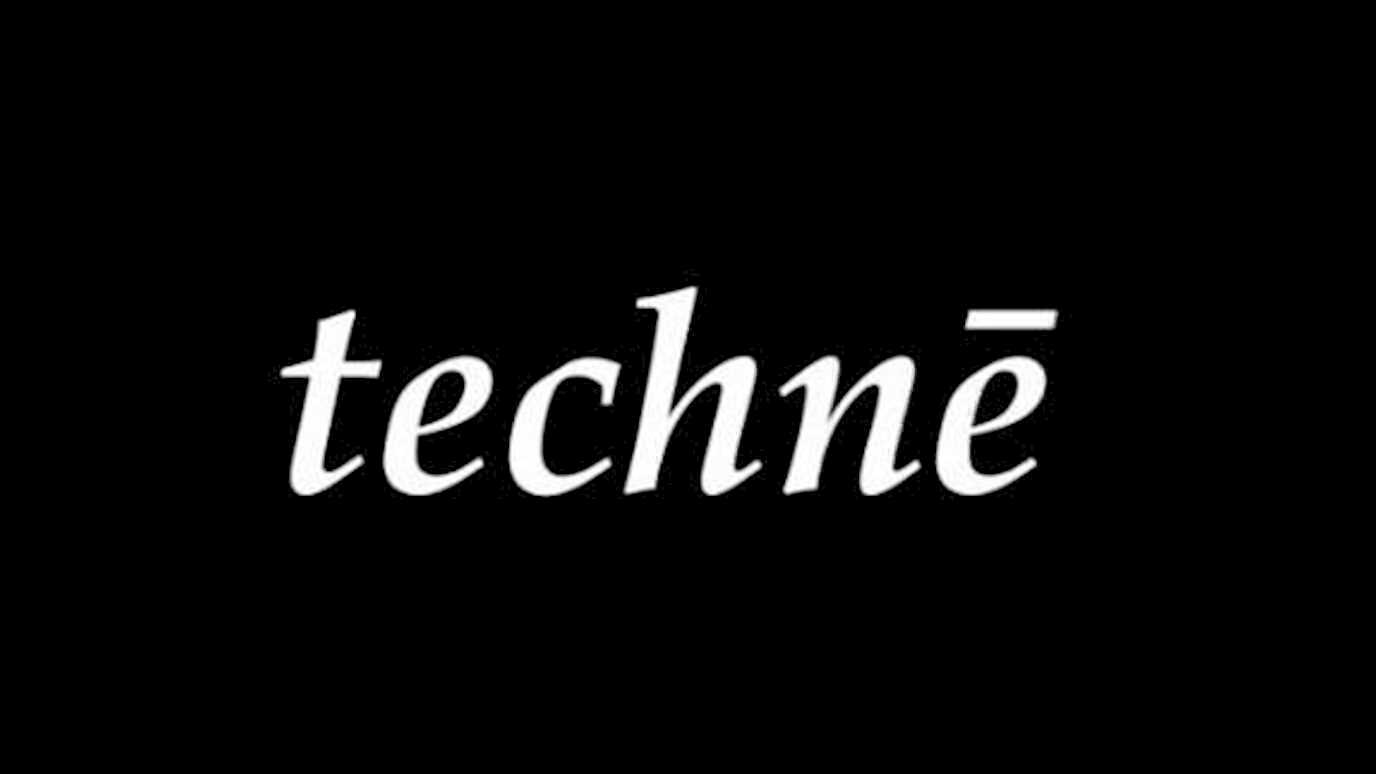Digital Diversity in the Midst of a Crisis: (August 14th 2020) 3pm UK time

From Zoom communities and digital protests to the power grabbing of Silicon Valley platform capitalists, the neo-surveillance of tracking apps and the endless clicking on Animal Crossing, this is a time of the most intense reliance on the digital. At the same time, from BLM protests, fraught health services and a working class on the frontline, it is also a time of severe political division. This forum seeks to address the political potential to put the digital to work in creating and developing equalities and diversities when we emerge from this crisis, combatting racial, gender, ableist and anti-LGBTQIA+ inequality.
Abstracts:
Francesca Sobande (Cardiff)
Memes, Memory-Making and Digital Remix Culture During Crises
In what ways are memes and digital remix culture contributing to forms of memory-making, communication and community in the midst of the current crises? Which pop culture texts, references and remixed versions of them have gained traction in recent weeks, and why? How is all of this shaped by intersecting oppressions and connected to contemporary efforts to address structural inequalities? Guided by such questions, this session focuses on what can be learnt and understood from critically considering the socio-political implications of memes and digital remix culture during times of crisis.
Jilly Kay (Leicester)
Rage within the machine: gender, anger and communicative injustice in a post #MeToo context
The communicative architecture of digital media has been understood as central to the possibilities for challenging gender inequality, and to giving unprecedented 'voice' to women in the context of #MeToo. It is often said that women's anger has been 'unleashed', with the implication that this will lead ineluctably to structural change. Drawing on political theories of anger and feminist media theory, this talk considers the ambivalent potential of digital culture for collectivising rage and for conferring meaningful voice. It points to the insidious operation of communicative injustice and the new, conjuncturally specific ways in which voice is routinely and perniciously denied.
Elinor Carmi (Liverpool)
Breaking data infrastructure inequalities
In the past decade the internet has become an inseparable part of our lives, and even more so now during Covid19. But this online ecosystem has been designed in a specific way to conceal many things that happen in the back-end of our screens and importantly - to limit our understanding and engagement on these platforms. In this talk I'm going to show the way the digital advertising industry shaped how we experience the internet and what types of data literacies people need today to be proactive citizens that can negotiate, object and change these networked infrastructures.
Join via Zoom: August 14th, 2020 | 3pm to 6pm
ZOOM ID: 864 3255 9263
Funded by HARI
























